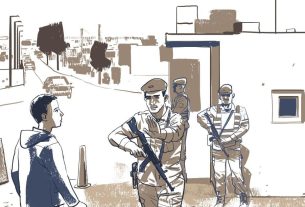This month, public prosecutors in Japan said they would not appeal the Tokyo High Court’s decision to hold a retrial for Iwao Hakamada, an 87-year-old former professional boxer arrested in August 1966 and sentenced to death for the murder of a family of four. This is the fifth time a death penalty case will be retried in Japan. In earlier cases, the defendants were all acquitted.
Hakamada’s case is just one of countless examples of Japan’s so-called “hostage justice system,” in which suspects are frequently detained prior to judgement for long and arbitrary periods – sometimes up to several months or years – to obtain their confessions. According to his legal team, in 1966 police interrogated Hakamada for an average of 12 hours a day, with some interrogations running as long as 17 hours. He was questioned without his lawyer, as permitted under Japanese law, and denied water and restroom breaks. In a letter recalling his experience, Hakamada said authorities threatened him, saying, “if we report your cause of death as an illness, that’s the end of it,” before beating him with a police baton.
It’s now rare for Japanese police to physically abuse suspects during interrogation. But authorities still coerce confessions during the pre-indictment detention period. Suspects can’t apply for bail before being indicted, and courts routinely deny bail during trial for those who do not confess. Most detainees are held in cells located inside police stations and placed under constant surveillance, including during mealtimes and in bathrooms. Courts often issue restrictions on communications, denying the accused permission to meet, call, or write letters to anyone other than their lawyers. More than 99 percent of Japanese trials result in convictions.
For decades, Hakamada has claimed his innocence. If he is found not guilty, his case will be another stark reminder not just of the flawed justice process in Japan, but that the death penalty should be abolished because it is a cruel, irreversible and irreparable form of punishment. Activists have long raised concerns that death-row inmates are notified of their execution only the day it occurs. For years, Hakamada lived in fear of being executed on any given day.
Japan should urgently reform its justice system by eliminating the “hostage justice system” and abolishing the death penalty.



